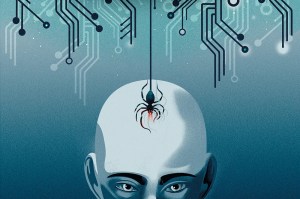A regular reader of Le Figaro for some years, I have been noting the frequency with which the editors print articles relating to the Académie française, founded by Cardinal Richelieu in 1634 for the purpose of acting as the protector and patron of the French language, fixing its usage and giving it exact rules to make it competent to deal clearly and elegantly with the arts and sciences. It was decreed that the academy should consist of precisely forty members, and that upon the death of any one of them the candidate to replace him should pay court to the remaining thirty-nine to be selected to fill his numbered seat. The sitting forty were known as “les Immortels.” The larger part of them were men of letters, though scientists, statesmen and other luminaries were not neglected.
As the procedure established for the perpetuation of the Academy suggests, it was not the Immortals themselves who were so regarded by their peers, but rather their works. From the seventeenth century until recently, most of the works of figures such as Buffon, Montesquieu, Dumas fils, Racine, Corneille, Tocqueville, Chateaubriand, Mauriac, Gilson, La Fontaine, Voltaire, Fénelon, France and Valéry appeared indeed to stand a good chance at immortality. Yet it is probable that a generation hence these august names will be forgotten, and their works with them.
The ignorant, bigoted, worse-than-Philistine activists who have been busy over the past decade “canceling” men and women by comparison with whom they themselves are barely worthy to be called human beings have simply been wasting their time and effort. Public education, mass culture and entertainment, barbaric digital distractions — the internet, computer games and social media — have completed the work of cultural annihilation and human degradation that radio and television began. Now ideological rage against the past and anything belonging to it ensure that the towering legacy of a great civilization and those who preceded it are doomed to oblivion.
One thinks of Anglo-American letters alone in the seven decades since 1945. In postwar America, major authors such as Hemingway, Steinbeck, Faulkner, Lytle, Lewis, Chandler and O’Hara were still writing, while new ones like Nabokov, Mailer, Flannery O’Connor, Cormac McCarthy, Cozzens, Percy, Updike and others were just getting started. In Great Britain, Evelyn Waugh, Anthony Powell, Graham Greene, Dylan Thomas and George Orwell continued their careers, as did C.P. Snow, Wodehouse, Galsworthy, Eliot, Wyndham Lewis, C.S. Lewis, Le Carré and numerous others, while the literary world was learning of Muriel Spark, Kingsley Amis and George MacDonald Fraser.
As late as the 1980s, perhaps even the Nineties, their names were instantly familiar to the English-speaking reading public, as those of Zola, Rolland, Saint- Exupéry, Mauriac and Malraux were to the French — and these were immediately contemporary writers, or almost; their classical forebears were still read and appreciated by educated people throughout the civilized world.
That is no longer the case, as I was reminded recently in conversation with a college freshman who had never heard of Ernest Hemingway, let alone read a book by him. Until about thirty years ago, the best works of the grand literary tradition of the West and of non-Western civilizations were kept alive in circulation and read by the institutions of so-called higher education, the colleges and universities, where they were required reading in literary curricula, which had the added benefit of encouraging major publishing houses to keep them in print in paperback editions of quality.
Today all that is over following a generation of neglect, cavalier dismissal and scorn, as universities have become, on the one hand, factories for the production of trained commercial and industrial workers and, on the other, regiments of revolutionary ideologues primed to transform civilized societies into barbaric, philistine post-cultures.
Practically speaking, no one reads Waugh, Stendhal or Faulkner anymore, not to mention Hemingway, whom monstrous regiments of feminists did in a generation ago. Political and cultural conservatives seem to have decided that the War of the Worlds between capitalism and communism, freedom and slavery is of far too critical and immediate importance to allow for the waste of time and mental energy that the appreciation of great literature demands.
Supposing for argument’s sake that literature continued to be taught in schools and people still considered it a valuable pursuit, it is probable that the sheer volume of current literary production, added to all that has come before, would by itself spell the end of the literary tradition and the death of literature. Today, all the wrong people wish to be writers for all the wrong reasons — the glamour, the notoriety and the advancement of cultural diversity and political revolution. Thus literary production increases almost exponentially, burying the truly valuable work of previous millennia beneath an overburden of meretricious junk so vast and deep as to make excavation appear unthinkably difficult, and immortality through artistic achievement a fatuous dream. Henceforth, serious artists will labor not for immortality, but simply to create something beautiful for God and man — as Flannery O’Connor said, with the least care joined with the most.
This article was originally published in The Spectator’s May 2023 World edition.

























